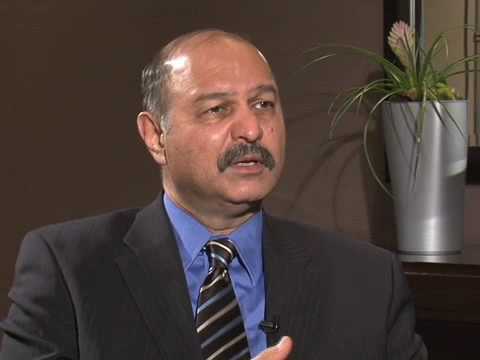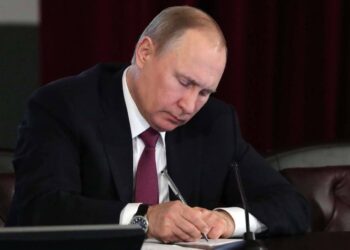The background information of CICA
The Conference on Interaction and Confidence Building Measures in Asia (CICA) is an inter-governmental forum for enhancing cooperation towards promoting peace, security and stability in Asia. It is a forum based on the recognition that there is close link between peace, security and stability in Asia and in the rest of the world.
The idea of convening the CICA was first proposed by Kazakhstan President Nursultan Nazarbayev on 5 October 1992, at the 47th Session of the United Nations General Assembly.
The proposal for convening the CICA was welcomed by a number of Asian States. During the next seven years, a series of meetings were held among the interested countries to discuss modalities of convening the CICA and draft basic documents. The first meeting of the CICA Ministers of Foreign Affairs was held in 14 September 1999 with participation of 15 Member States. The Declaration on Principles Guiding Relations between CICA Member States was adopted at this meeting. The first CICA summit was held on 4 June 2002 with participation of 16 Member States and Almaty Act, the charter of the CICA, was adopted. At the second meeting of the Ministers of Foreign Affairs in 2004, CICA Catalogue of Confidence Building Measures and CICA Rules of Procedures were adopted. At the second CICA Summit in 2006, it was decided to admit Thailand and Republic of Korea as new members and to establish a permanent secretariat. At the third meeting of Ministers of Foreign Affairs in 2008, Jordan and UAE were admitted as new members. At the third CICA Summit in 2010, Turkey assumed Chairmanship of CICA from the founding Chairman Kazakhstan. The third Summit also admitted Iraq and Vietnam as new members and adopted the CICA Convention. Bahrain and Cambodia joined CICA during 2011 taking membership to 24
Interview Questions
1 What is your expectation for CICA this year, which will be held in China Shanghai from May 20 to May 21(So far around 40 countries and 14 state leaders will participate in CICA Shanghai, making it the largest conference in its history)?
The Shanghai CICA conference, starting on May 20, is probably the most important and the most representative in the history of CICA, as it will mark the coming of age of this new, growing organisation. Given the context of the 21st Century as the ‘Asian Century’, with the shift in the global balance of economic and political power from the West to the East, and the peaceful rise of China, this will help set the Agenda for Asia’s future role through consultation and consensus.
2 What is the meaning and importance of CICA in your opinion?
CICA is relevant and important for three reasons during the contemporary age. First, it is emerging as the voice of the ‘Asian Century’, presenting an Asian perspective on the world’s most important planet. Second, given the dangers of a revival of the Cold War in parts of Asia, CICA can be an institutional force for cooperation rather than confrontation. Third, issues of peace, security and stability in Asia are inextricably intertwined with the rest of the world, and CICA can be a bridge to reinforce this inter-dependence.
3 Pakistan is a member of CICA and it is said that President Mamnoon Hussain will participate the CICA this year. How do you view on this issue?
Pakistan is an active member of CICA and since it is in the neighbourhood of the founding members of CICA, and given Pakistan’s concerns on peace, security and stability in Southwest Asia, particularly Afghanistan, the presence of the President of Pakistan underlines importance of CICA to Pakistan.
4 How do you comment on the contribution made by China for Asia’s security, peace and development?
China has made a pivotal contribution for Asia’s security, peace and development by serving as a role model of a big country adhering to international legal norms and the United Nations Charter, proving that size does not always necessarily equal strength. China has based this relationship with Asia on the time-tested Five Principles of Peaceful Coexistence, which are what the Asian Century’s future will be since such principles promote equality among nations, big and small. And alone among big nations, China has not used its emerging economic might to translate into military muscle with its neighbouring countries, contrary to the historical trends of the past pertaining to previous big powers, including the European powers, the US, Russia and, in the case of Asia in the 20th Century, Japan.
5 What kind of role should China play in your opinion in CICA?to promote Asia’s security cooperation?
China should lead with ideas, issues and initiatives, as is happening under the leadership of President Xi Jinping. He has given the concept of the ‘Chinese Dream’ and the ‘Central Asia Economic Belt’, and linked China’s prosperity and development to peace, security and stability in Asia, in other words, reinforcing the linkage between development and security in economy and foreign policy. At CICA Summit in Shanghai, China should present a Charter for Peace and Security in Asia for the 21st Century, uniting Asian countries around a shared vision against such common enemies like poverty, pollution, climate change, militarism and terrorism. These will become both the vision and new ‘rules of the game’ promoting cooperation among Asian countries, particularly CICA members, in the 21st Century.
6 China will be the host state of CICA from 2014 to 2016. How do you view on this issue? How do Asia countries improve regional security, strengthen mutual trust and deepen the relevant cooperation in the future?
China hosting CICA from 2014-2016 is a crucial period for Asia and the entire world. The world, especially Middle East, Southwest and Southeast Asia, are going through a transition, with upheaval and unravelling of the status quo in certain regions. Under these circumstances, it is imperative that the use of force be eschewed, that conflicts are resolved peacefully and there is adherence to universal norms of conduct, like the Five Principles of Peaceful Coexistence and as mentioned earlier, China should present a new Charter of Peace and Security in Asia for the 21st Century, so the dangers of a new Cold War in Asia are averted.
7 We know you used to be the minister of information and mass-media broadcasting. Would you share with us the significance of information security and relevant coordination?
The most important role in shaping perceptions and influencing policies should be by the mass media through an Information Security vision shared and presented jointly by CICA through consultation and consensus. The information vision can share each other’s success stories and experiences, where we learn from each other, and which should demonstrate, at the practical level, that that Asians have more in common than there are differences. In concrete dreams, to promote that the ‘Chinese Dream’ is in confluence with the ‘Asian Dream’, a shared vision of a better tomorrow for Asia, without any overlords or underdogs!
Thank you so much for your time and attention!


















